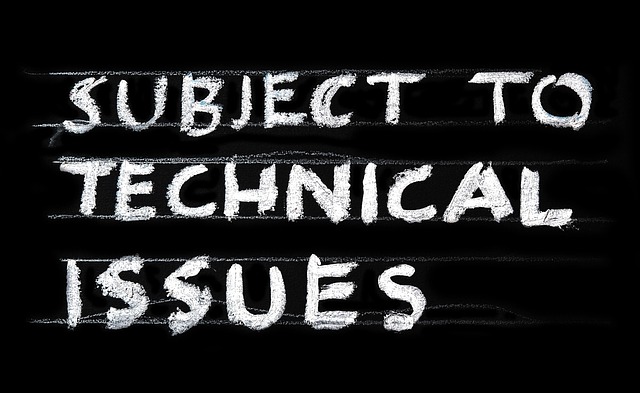Child support cases often encounter common mistakes due to misinterpretations of legal requirements (child support calculations, ambiguous language) and lack of professional guidance. Key issues include incorrect income/asset disclosures, outdated calculations, insufficient communication, and neglecting children's unique needs. To avoid these pitfalls, parents and guardians must stay informed, consult professionals, maintain transparent financial records, foster open communication, prioritize the child's best interest, and adhere to court deadlines, minimizing legal support errors and frequent support mistakes for fair, accurate outcomes.
In the intricate world of child support cases, navigating legal requirements and procedural nuances is paramount. Common errors, such as misinterpreting laws, inaccurate financial calculations, and neglecting to update vital information, can significantly impact outcomes. Effective communication among all parties and a focus on the child’s well-being are essential yet often overlooked aspects. By understanding these frequent pitfalls, individuals and legal professionals alike can avoid critical mistakes, ensuring fair and just support arrangements. This article explores these issues in detail, offering insights into how to navigate child support cases more effectively.
- Misinterpreting Legal Requirements and Guidelines
- Inaccurate Calculation of Income and Assets
- Neglecting to Update Information Timely
- Lack of Communication with All Parties Involved
- Overlooking the Impact on Child's Well-being
Misinterpreting Legal Requirements and Guidelines

Many individuals involved in child support cases often find themselves making common mistakes due to a misinterpretation of legal requirements and guidelines. These errors can significantly impact the outcome of the case, leading to financial burdens or disparities that could have been avoided. One of the primary issues is failing to understand the intricate rules governing child support calculations, which are based on factors like income, custody arrangements, and the specific needs of the child.
Another frequent error is not seeking clarification when facing ambiguous language in legal documents or guidelines. This lack of understanding can result in incorrect interpretations of what constitutes reasonable support, especially regarding expenses beyond basic necessities. To steer clear of these pitfalls, it’s paramount to educate oneself thoroughly about the legal framework or consult with a qualified professional who can provide guidance tailored to one’s unique situation, thereby minimizing potential support case errors.
Inaccurate Calculation of Income and Assets

One of the most frequent support errors in child support cases is the inaccurate calculation of income and assets. This often stems from incomplete or incorrect financial disclosures by one or both parents, leading to misunderstandings and disputes. Since child support calculations heavily rely on precise financial data, even minor miscalculations can significantly impact the outcome. It’s crucial for all parties involved to provide transparent and up-to-date financial information to avoid these common support errors.
Moreover, the complexity of modern financial landscapes, including diverse income sources and investment portfolios, necessitates meticulous attention to detail. Failing to consider all relevant earnings streams or overlooking significant assets can result in unfair agreements that burden one parent disproportionately. To steer clear of such legal support errors, it’s vital to consult with experienced professionals who understand the nuances of child support calculations, ensuring a more accurate and equitable outcome for all concerned.
Neglecting to Update Information Timely

Many child support cases involve dynamic circumstances that demand regular updates to ensure fairness and accuracy. A common error is failing to promptly update information, leading to outdated calculations and potential legal complications. Parents or guardians must actively maintain current records of income, employment status, and any significant changes in living arrangements affecting the child’s welfare. Timely updates are crucial to prevent miscalculations that could result in unfair support amounts or even legal disputes.
Neglecting to update information can create frequent support errors, especially when combined with other common support pitfalls like missed court dates or inaccurate financial disclosures. To avoid these mistakes, it’s essential to stay organized and proactive. Maintaining detailed records, keeping communication open with legal representatives, and adhering to court-set deadlines are effective strategies to ensure a smooth child support process.
Lack of Communication with All Parties Involved

In child support cases, effective communication is paramount to ensuring a fair and swift resolution. However, one of the most common errors is the lack of comprehensive communication with all parties involved. This can lead to misunderstandings, delays, and even legal complications. Parents, guardians, attorneys, and the court often need regular updates, clear instructions, and immediate responses to critical issues. When this flow of information is hindered, it creates a web of confusion that can entangle the entire process.
To avoid these child support mistakes, all parties must commit to consistent, transparent communication. This involves keeping everyone informed about changes in circumstances, financial status, or any potential obstacles that might impact the case. Regular check-ins and prompt responses to inquiries are vital to navigate the complex landscape of legal support errors and frequent support errors, ensuring a smoother journey towards resolution.
Overlooking the Impact on Child's Well-being

In the heat of a contentious child support case, it’s easy to focus solely on financial figures and legal procedures. However, overlooking the profound impact these decisions have on the child’s well-being is a common mistake. The emotional and psychological health of minors involved in such cases should never be an afterthought; their needs must be at the forefront of every decision made. Frequent support errors include failing to consider a child’s unique circumstances, such as their mental health status or educational requirements, which can lead to inadequate support arrangements.
Ignoring these factors can have long-lasting effects on a child’s development and overall quality of life. Legal support errors in child support cases often stem from a lack of empathy and holistic understanding of the child’s needs. To avoid these mistakes, parents and legal professionals must remember that the child’s best interest should be the primary consideration. This involves continuous communication with the child, if age-appropriate, to ensure their wishes and concerns are heard and addressed in the process.
